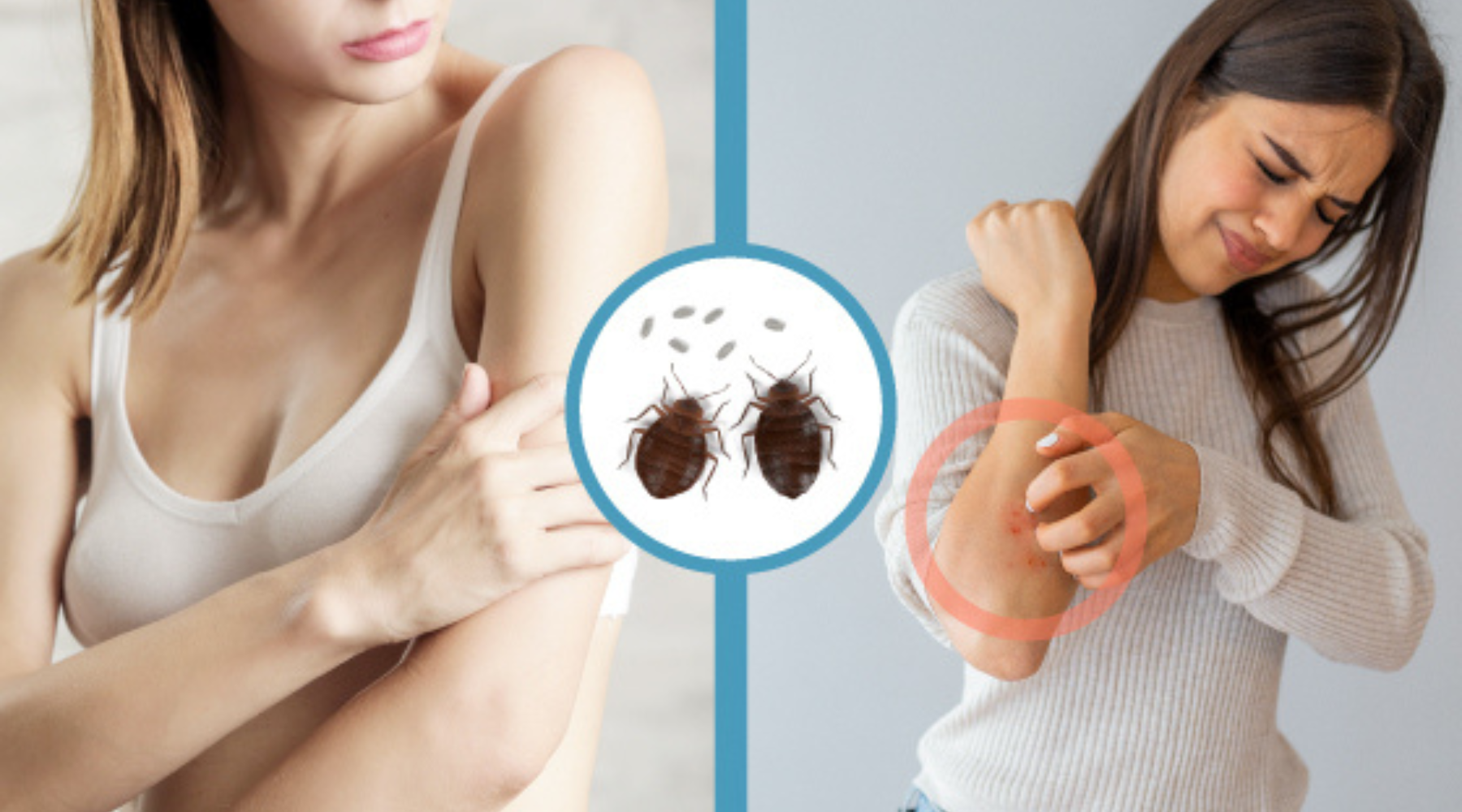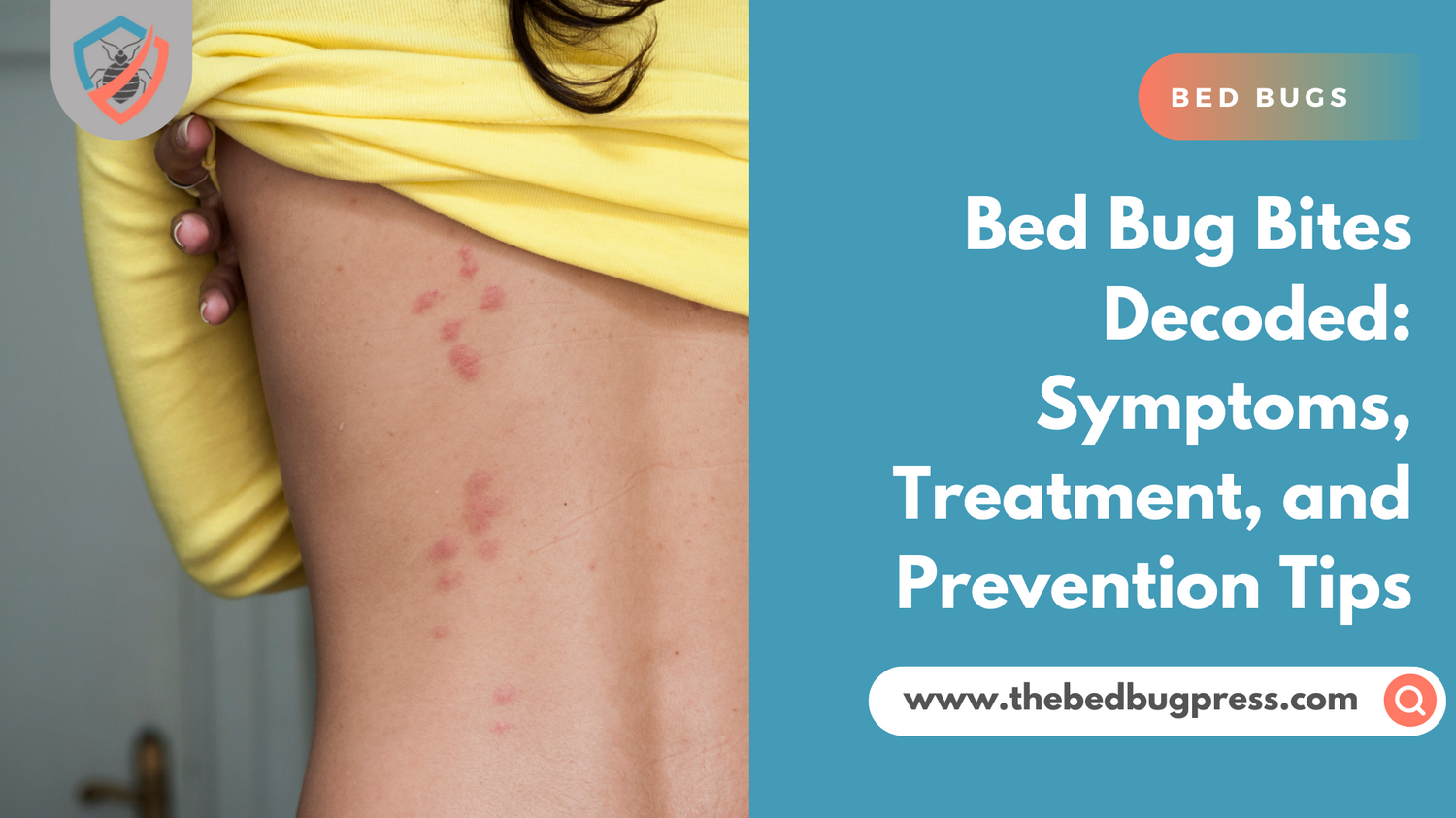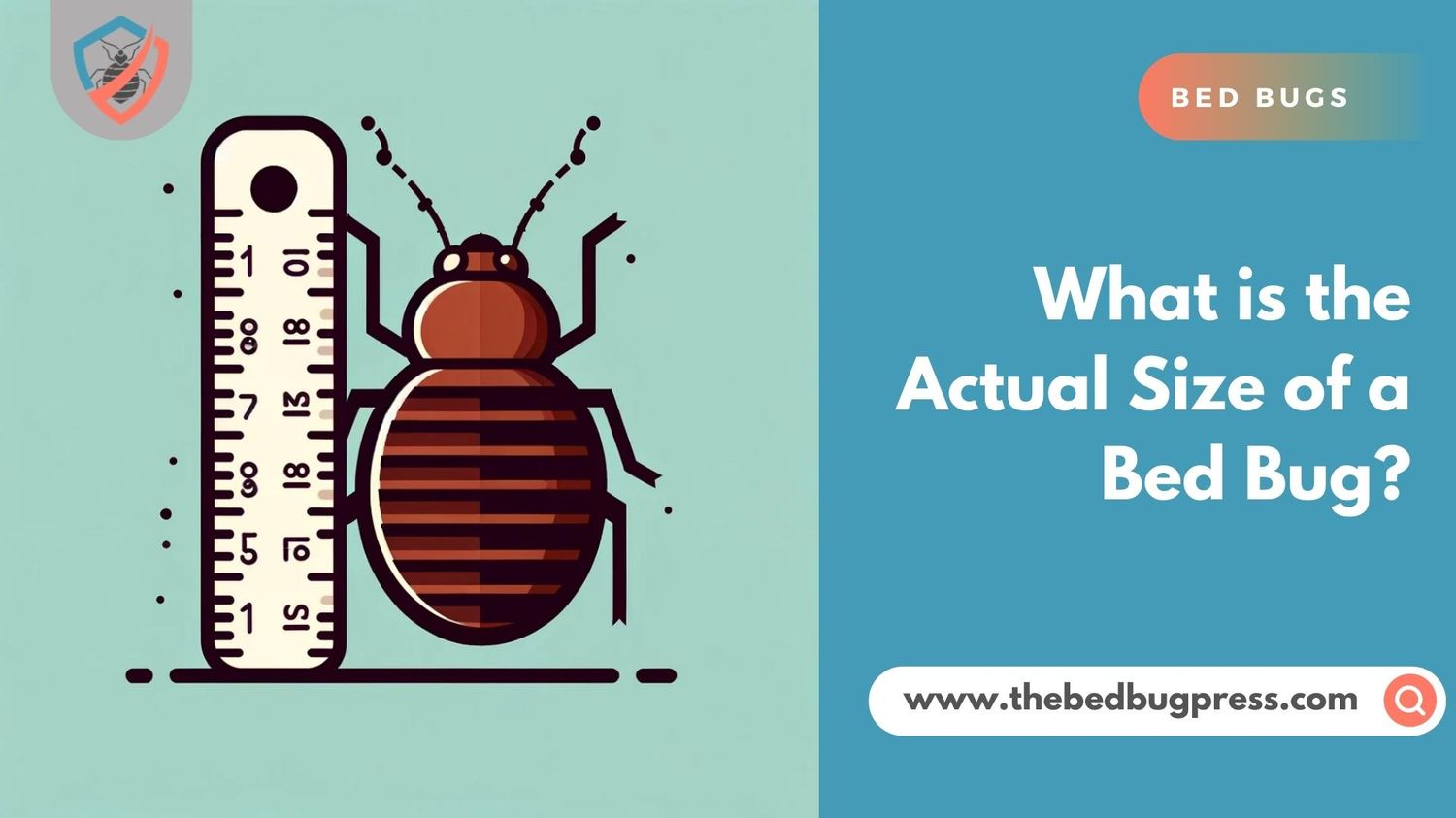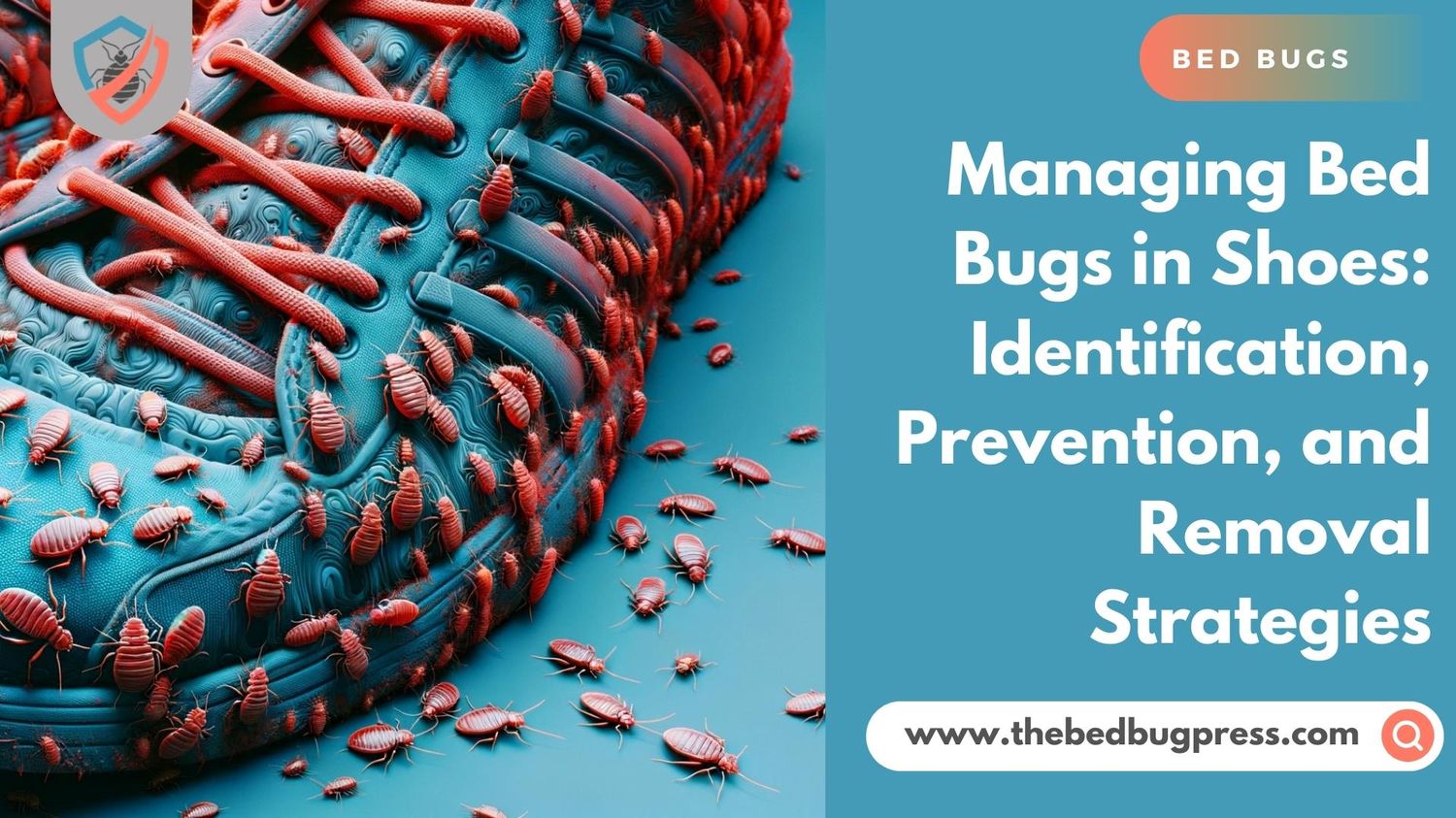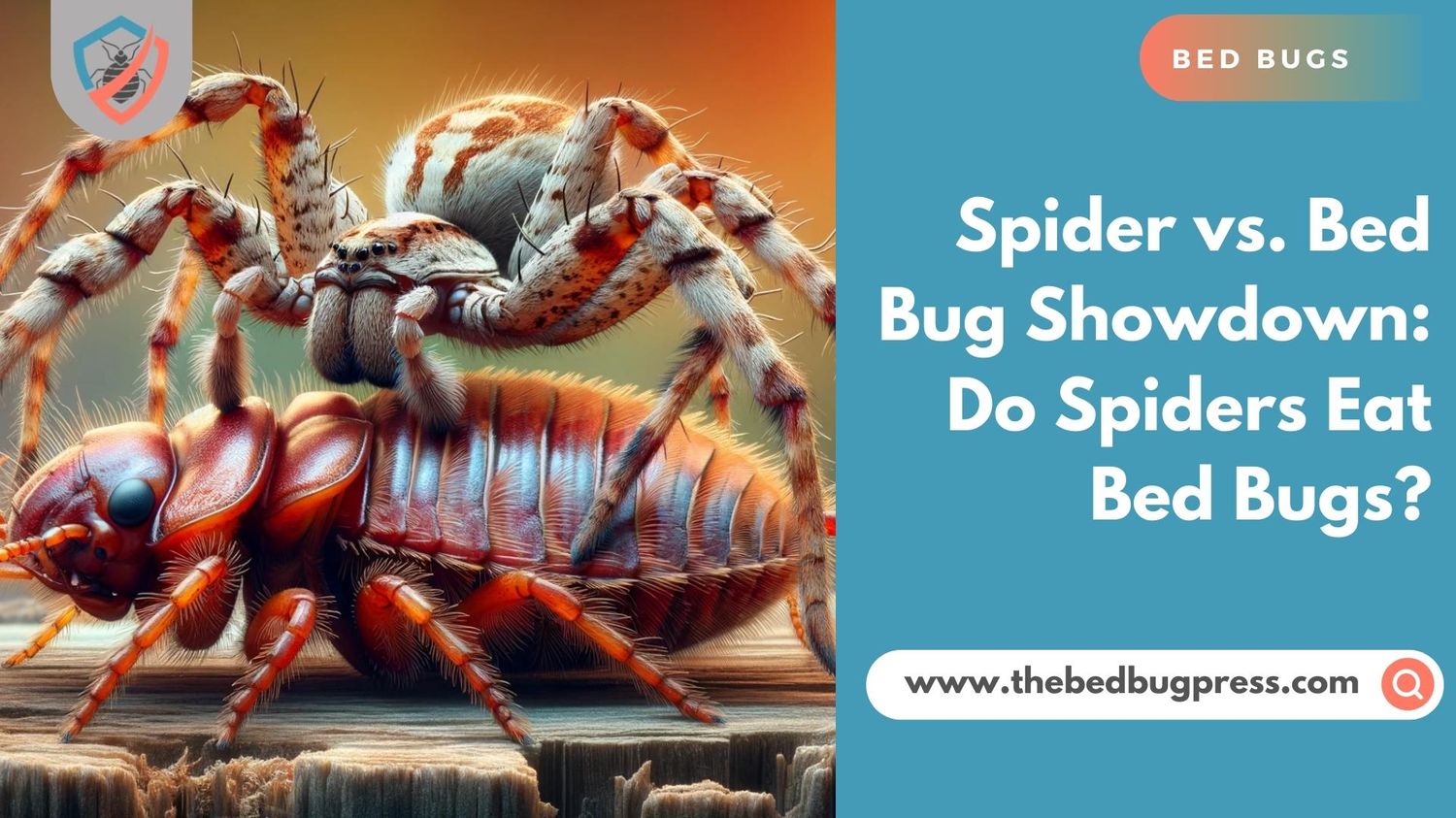Have you ever wondered why some people seem to get bitten by bed bugs more often than others? Find out why this mysterious pest may prefer one person over another, the symptoms and signs of bed bug bites, and what you can do to prevent them.
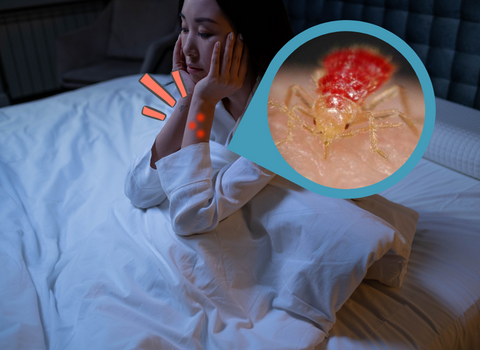
What Factors Determine Who Bed Bugs Bite?
Bed bugs are elusive creatures that can live in almost any environment and feed on the blood of humans and animals.
But why do they seem to be drawn to some people more than others? It could be due to a variety of factors such as:
- Skin Type
- Scent
- Body Temperature
- Sleeping Pattern
- Clothing Choices
- Chemical Imbalances in The Body
Bed bug bites can be a source of discomfort and irritation for many, but understanding the factors that make you more likely to attract them can help you reduce your risk.
Knowing the symptoms of a bite can help you identify if you have been bitten, so you can take appropriate measures for prevention or treatment.
Not Being Bitten by Bed Bugs – What’s the Secret?
If you haven’t been bitten by bed bugs, that’s great news! There are a few reasons why you might not have experienced any bites yet. For example:
- You may not have been exposed to bed bugs or your immune system may not react to the bites.
- Another possibility is that your bed may be protected with bed bug-proof encasements, and your home may be clean and dry, which makes it less attractive to bed bugs.
- It’s also possible that your skin doesn’t emit the same amount of warmth and moisture as other people, making you less appealing to bed bugs.
Regardless of the reason, it’s important to keep taking preventative measures to avoid bed bug infestations. Regular inspections and proactive steps can help you avoid the discomfort and frustration of dealing with bed bugs in the future.
Do Bed Bugs Have a Discriminating Palate for Blood Types?
Though research on bed bugs’ preference for certain blood types is still ongoing, some studies have proposed that bed bugs may have a leaning toward blood type O. However, this has not been proven as a universal truth yet and much more needs to be explored about how bed bugs pick their hosts.
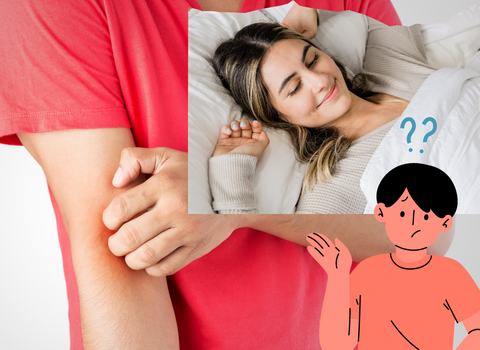
Washing Before Bed: Does It Keep Out Bed Bugs?
Taking a shower and washing your hands before bed can be effective ways to avoid bed bug bites and reduce the risk of infestation. Furthermore, using hot water and soap helps to remove eggs or hiding spots they may have found, as well as allergens, dust mites, and other debris that can attract them.
Laundering items such as sheets, pillows, comforters, curtains, and clothes regularly with laundry detergent also keeps them clean of any potential bugs. Lastly, vacuuming regularly is essential to get rid of food sources for bed bug larvae and dust mite eggs that could draw them in.
Who Do Bed Bugs Prefer – Male or Female?
Bed bugs are indiscriminate in who they choose to bite – they don’t prefer one gender over the other. However, because of how bed bugs feed on human blood, certain factors can make some people more attractive to bed bugs than others.
The following factors can all play a role in attracting these pests:
Body Heat
Body heat is one of the most important factors when it comes to attracting bed bugs. People who generate more body heat, like those who exercise regularly or have higher metabolisms, tend to be more attractive targets for bed bug bites.
Carbon Dioxide Production
Carbon dioxide production is also an important factor – people who exhale larger amounts of carbon dioxide are more likely to attract bedbugs than those with smaller exhalations.
Blood Type
Lastly, blood type can be a factor in attracting bed bugs – those with type O blood tend to attract the most bedbugs out of any blood type.
Is There a Particular Color That Attracts Bed Bugs?
Bed bugs have no preference when it comes to color, but dark surfaces may provide them with a hiding place. That said, research suggests that they may be more drawn to certain shades and tones of red than other colors. To reduce the chances of a bed bug infestation, it’s wise to avoid brighter colors, particularly those in the red spectrum.
Is There a Reason Only One Person in a Family Gets Bitten by Bed Bugs?
It is often unclear why only one person in a family may be bitten by bed bugs. This could be due to body chemistry, the warmth emitted, or simply because they are the only ones sleeping in an infested area.
However, regardless of how reactive those affected may be to bed bug bites, it is essential to take quick action in eliminating them from the home. Bed bugs are drawn to warmth, carbon dioxide, and various chemicals released by human skin which can lead them to show a preference for some over others.
Could It Be That Bed Bugs Only Bite One Person?
Bed bugs can feed on multiple hosts, including humans, pets, and wildlife. It’s unlikely that they only bite one person in a household. However, some people may react more adversely to the bites than others, which can make it appear as if they are the sole recipients of the bites.
These pests love the warmth and carbon dioxide emitted by humans – this can help determine their preferred host. To prevent bed bug problems from occurring, you should keep your home clean and tidy, inspect secondhand furniture before bringing it into your home, and seek professional help if necessary.

Why Do Bed Bugs Only Bite Me?
Bed bugs usually don’t favor one person over another. They are drawn to the warmth and carbon dioxide of humans, which can make them snack on multiple family members. Yet, some individuals might have a more severe reaction to bed bug bites than others, making it look like they are the only ones being bitten.
In addition, factors such as sleeping arrangements or how much time is spent in a certain room might influence who is their favorite person.
Who Does the Pestering Bed Bug Prefer to Peck On
Bed bugs may feed on humans, cats, dogs, bats, and other warm-blooded animals. They don’t show any preference in whom they will bite – anyone or anything present in their vicinity can be a potential target. However, certain factors can influence how attractive a person or animal is to bed bugs – body heat, carbon dioxide production, and the presence of particular allergies and proteins can all play a part.
A Silent Attack: You May Not Realize the Bed Bug Bites
Bed bugs can bite you while you sleep, but not everyone reacts to the bites in the same way. Some people may not have any symptoms, while others may experience red, itchy bites. The bites themselves can be painless and hard to notice, as bed bugs inject an anesthetic and anticoagulant when they bite.
How Is Your Body Reacting to a Bed Bug Bite?
Bed bug bites typically cause red, itchy welts that may appear in a line or cluster. Most people develop symptoms several days after being bitten.
Some people may have an allergic reaction, which can cause severe itching, swelling, or difficulty breathing. It’s important to keep the bites clean, avoid scratching, and use over-the-counter anti-itch creams or antihistamines. Seek medical attention if you experience severe symptoms or have an allergic reaction.
Warding off the Pests – Is Bed Bug Repellent the Solution?
Bed bug repellents may help in avoiding getting bites from these pesky critters, but these are not effective for preventing or eliminating a bed bug infestation. Instead, take proactive measures to prevent bed bugs from entering your home, such as inspecting used furniture, vacuuming regularly, and sealing cracks and crevices.
If you discover an infestation, take immediate action to eliminate the bugs and prevent them from spreading. This can involve cleaning and vacuuming thoroughly, using bed bug traps, and seeking professional help if necessary.
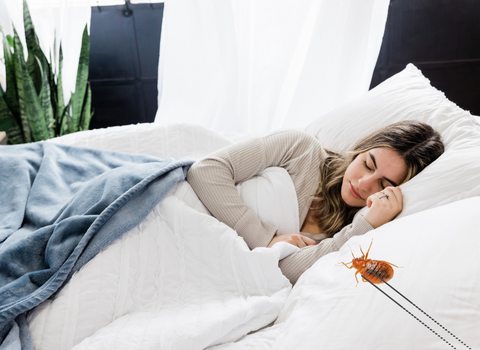
How to Prevent Getting Bitten by Bed Bugs
To prevent getting bitten by bed bugs, there are several measures you can take:
Inspect second-hand furniture or clothing for bed bugs before bringing them into your home.
Use a bed bug-proof mattress and pillow encasement.
Keep your home clean and clutter-free.
Vacuum regularly, paying special attention to cracks and crevices where bed bugs may hide.
Seal any cracks and crevices around your home where bed bugs may enter.
Avoid placing luggage or clothing on the floor when traveling, as bed bugs can hitch a ride home with you.
If you suspect a bed bug infestation, take immediate action to prevent it from spreading by cleaning and vacuuming thoroughly, using bed bug traps, and seeking professional help if necessary.
By taking these steps, you can reduce the risk of a bed bug infestation in your home and minimize the chances of getting bitten.

